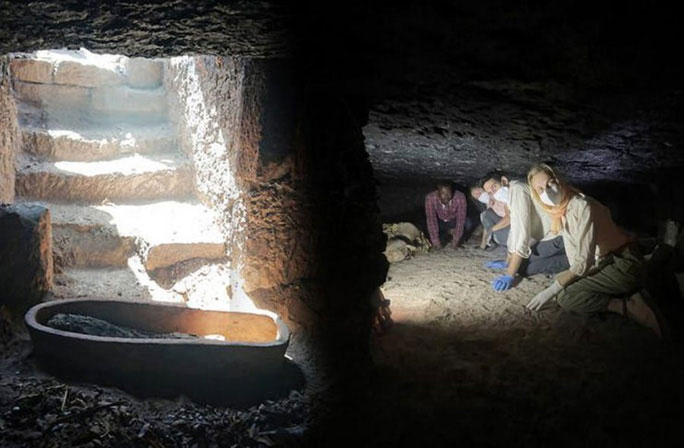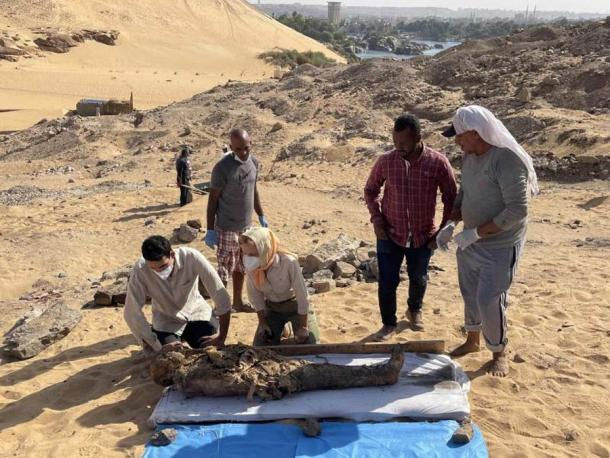Discovered 20 'innovative' Egyptian mummies with different bloodlines
A large mausoleum in Aswan has given scientists 20 mummified Egyptians but not Egyptians who were forgotten centuries after tomb robbers carried away all the treasure.
According to Mostafa Waziru, General Secretary of the Supreme Council of Antiquities, it is a Greco-Roman tomb consisting of two parts. A floating part is made of sandstone and mud bricks, the lower part is created by going straight into the rock. The tomb is bearing the code AGH032, which was looted by ancient tomb robbers.

Inside the Tomb
An Egyptian and Italian delegation, led by professor of Egyptology and archaeology Patrizia Piacentini from Milan State University and Mr. Abdel Moniem Said, Director General of Antiquities Aswwan and Nubia (SCA), had the excavations. from 2019 in Aswan (Egypt), according to Ancient Origins.
Previously, 300 tombs dating from the 6th century BC to the 4th century AD were found here. The new mausoleum is believed to date from that same period.
The 20 people in the grave are all mummies, belonging to 3 families. Their bodies were treated by traditional Egyptian mummification, but were much simpler than those of the ancient Egyptian nobility.
Their coffins are made of clay and various types of sandstone, while the honor mask on the coffin is made of an ancient form of colored "cardboard", consisting of many layers of fiber or plastered papyrus.

A mummy has just been taken out for research
The tomb also contains many animal bones, pottery shards, tables and offerings, which were used by ancient people for rituals for the dead. A bronze necklace with Greek inscriptions and several hieroglyphic stone slabs were also missed by grave robbers, providing plenty of archaeological clues.
The Greeks arrived in Egypt as early as the 7th century BC, and by the 4th century BC the conquests of Alexander the Great established the city of Alexandria. Then Egypt was until 30 BC, the Roman Empire merged Egypt - the Kingdom of Ptolemy, thereby creating a complex Greco-Roman culture on Egyptian land.
- Egyptian mummy floating on the canal
- Catacombs contain more than 50 mummies of Egyptian royalty
- Discovered the ancient Egyptian mummy almost intact
- Successfully deciphered the tiny red face of ancient Egypt
- Shocking discovery of Egyptian mummies
- Excavating 2,500-year-old Egyptian tombs, suddenly discovered inside contains dozens of cat mummies
- Egypt discovered nearly 60 mummies during the New Kingdom period
- Move 3 Egyptian mummies to check DNA
- Mysterious portraits of ancient Egyptian mummies
- Egyptian mummy 3,000 years of eternal rest by the people of today
- Discover hundreds of 6,000-year-old mummies in 7 Egyptian catacombs
- Detecting 30 mummies in an ancient crypt
 Discovered an ancient centipede fossil 99 million years old
Discovered an ancient centipede fossil 99 million years old Discovered bat-like dinosaurs in China
Discovered bat-like dinosaurs in China Discovered a 200-year-old bronze cannon of the coast
Discovered a 200-year-old bronze cannon of the coast Discover 305 million-year-old spider fossils
Discover 305 million-year-old spider fossils